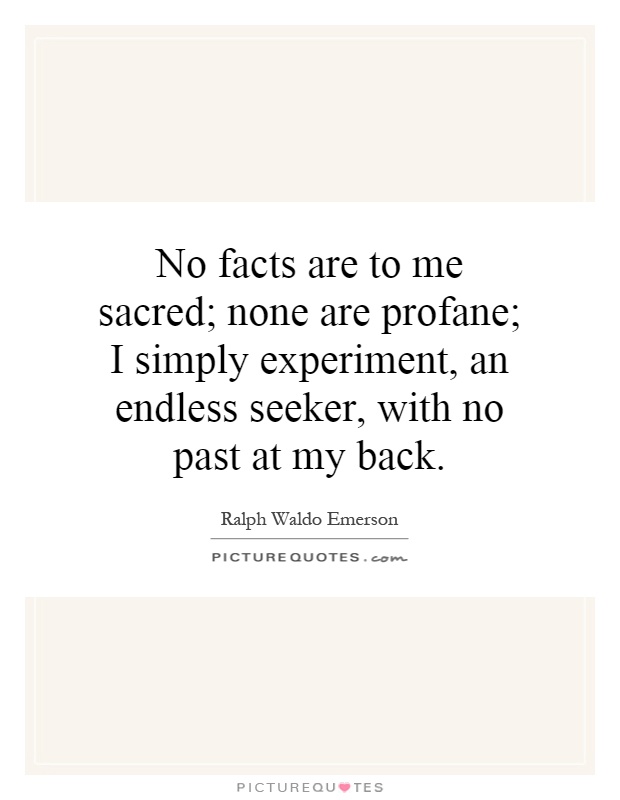No facts are to me sacred; none are profane; I simply experiment, an endless seeker, with no past at my back

No facts are to me sacred; none are profane; I simply experiment, an endless seeker, with no past at my back
Ralph Waldo Emerson, a prominent figure in the transcendentalist movement of the 19th century, was known for his radical ideas and rejection of traditional beliefs. One of his most famous quotes, “No facts are to me sacred; none are profane; I simply experiment, an endless seeker, with no past at my back,” encapsulates his philosophy of individualism, self-reliance, and the pursuit of truth through personal experience.Emerson believed that one should not blindly accept established truths or conform to societal norms. Instead, he encouraged people to question everything, to challenge conventional wisdom, and to seek their own understanding of the world. For Emerson, knowledge was not something to be passively received, but something to be actively pursued through observation, reflection, and experimentation.
In the quote, Emerson emphasizes the importance of being open-minded and curious, of approaching the world with a sense of wonder and a willingness to explore new ideas. He rejects the idea of being bound by the past, of being limited by tradition or authority. Instead, he sees himself as a perpetual learner, always seeking to expand his understanding and deepen his insights.
Emerson’s rejection of sacred and profane facts reflects his belief in the inherent value of all knowledge, regardless of its source or status. He saw truth as something that could be found in the most unexpected places, in the most unlikely forms. By remaining open to all possibilities, by refusing to be constrained by preconceived notions or prejudices, Emerson believed that one could uncover deeper truths and gain a more profound understanding of the world.












 Friendship Quotes
Friendship Quotes Love Quotes
Love Quotes Life Quotes
Life Quotes Funny Quotes
Funny Quotes Motivational Quotes
Motivational Quotes Inspirational Quotes
Inspirational Quotes